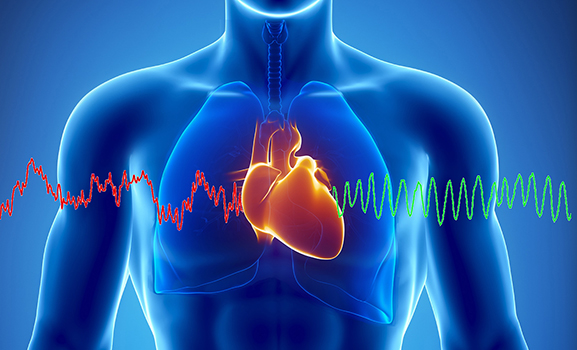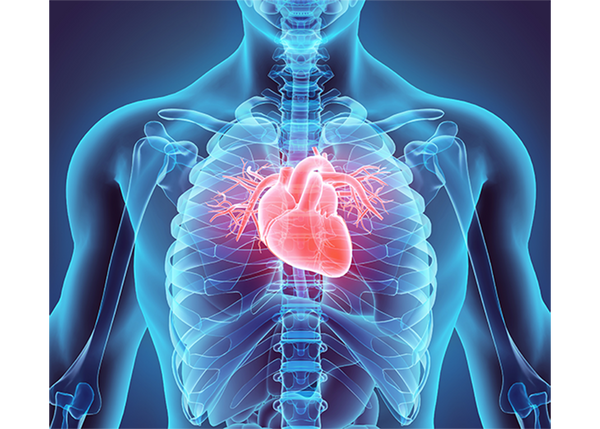Your Heart and Low Magnesium Levels
Posted by Annette Hasalone, N.D. on 31st Mar 2023

Heart Disease and Low Magnesium Levels
A report out January 31, 2013, suggests the strong link of low nutritional magnesium and a high calcium-to-magnesium ratio, in the increased prevalence of heart disease. It highlights 10 years of groundbreaking research in cardiovascular disease studies. Built upon the work of Mildred Seelig, MD, who studied the relationship of magnesium to cardiovascular disease for over 40 years, scientist and author Andrea Rosanoff, PhD, conducted this comprehensive review. In her research, Dr. Rosanoff discovered that, "By 1957 low magnesium was shown to be, strongly, convincingly, a cause of atherogenesis and the calcification of soft tissues." This peer-reviewed research showed low magnesium to be associated with all known heart disease risk factors, including high cholesterol and high blood pressure. In fact, studies dating back to as early as 1937, showed low magnesium levels, to be a greater predictor of heart disease than cholesterol or saturated fat intake. However, this research was widely ignored, shifting the focus back to cholesterol and the high saturated-fat diets.
This misdirection led to less emphasis on correcting low magnesium levels. Magnesium, considered an electrolyte, is a mineral found within the body. Electrolytes are responsible for the electrical activity in the body. They allow muscles to fire, the heart to beat, and the brain to get signals. One electrolyte deficiency causes imbalances within the entire system. Not only are sufficient levels of magnesium necessary to maintain normal muscle and nerve function, a steady heartbeat, strong bones, and a healthy immune system, but it also plays a role in regulating blood sugar, keeping blood pressure normal and helping the body metabolize energy.
Calcium is another key dietary requirement, one often supplemented for good health. Dr. Rosanoff found that decades of rising dietary calcium intake were not being appropriately balanced with dietary magnesium intake. Such balance is vital when you consider that calcium makes muscles contract and magnesium makes muscles relax. Being constantly tense and tight is a hallmark of magnesium deficiency. Magnesium works with the body to absorb calcium and potassium, so without proper levels of magnesium, calcium and potassium will not be properly absorbed. Based on her research, Dr. Rosanoff believes the imbalance of dietary calcium-to-magnesium ratios, has inadvertently led to an increase in cardiovascular disease. Carolyn Dean, MD, ND adds, "That cholesterol is not the cause must be obvious, since heart disease is still the number one killer in America in spite of over two decades of Statin use. The fact that low levels of magnesium are associated with all the risk factors and symptoms of heart disease-hypertension, diabetes, high cholesterol, heart arrhythmia, angina and heart attack-can no longer be ignored; the evidence is much too compelling." Many others echo these findings. "In the last decade, magnesium rightfully has received greater attention as a critical nutrient for optimal health.
This review secures magnesium, and correcting levels of magnesium intake, as one of the most critical health recommendations today," reports Ashley Koff, RD. Dr. Mehmet Oz adds, "Magnesium is essential for helping regulate metabolism, and it helps lower blood pressure and dilate arteries." He suggests that three out of four people in this country are magnesium deficient. A Serum magnesium below 0.85 mmol/L, combined with other risk factors, could be a causative factor for heart disease. If addressed before prescribing Statins, antihypertensives and glucose-lowering medications, it could reduce and possibly eliminate the need for them. However, how much magnesium is needed for optimal health? A 1:1 balance of calcium to magnesium is recommended, and the World Health Organization recommends 400-500 mg of calcium daily. When figuring magnesium needs, also take into account the amount of calcium obtained from diet. But beware when calculating nutrient intake, not all "healthy foods" provide as much nutrition as once thought. "The modern processed food diet, so widespread for decades in the United States, is made from food commodities that are low in magnesium (and some other essential nutrients), mainly due to processing losses but also due to decreasing magnesium levels in wheat, vegetables, and perhaps other food crops over the past 30+ years," states Dr. Rosanoff. Although the body balance of calcium to magnesium is 1:1 supplementation of calcium to magnesium should be 1:4 or higher in favor of magnesium.
Evaluate your diet and ensure that you have proper balanced nutrient levels, most especially calcium to magnesium. This becomes even more important if you have heart disease or its risk factors. Remember that nutrients work as a team and look to maintain proper balance. Balanced nutrition and proper supplementation is integral in the fight against heart disease. Dr. Dean also notes that, including low doses of vitamin D and vitamin K2, can protect your bones as well as your heart. A good multivitamin combined with balanced calcium and magnesium supplementation is vital, along with Omega 3 supplements to further balance the equation.
The bottom line is that nutritional intake influences health. Improper nutrition, combined with nutrient deficits or excesses can lead to unhealthy conditions within the body, conditions such as plaque buildup, hardening of the arteries and reduced blood flow. Eating a balanced diet, filled with a variety of unrefined whole grains, legumes, nuts, and vegetables (especially leafy dark-greens) every day, can help maintain heart health.
While that may seem like nothing new, focusing on calcium to magnesium balance, is a new consideration. While only one piece in a much larger puzzle, this research shows that it is an important consideration.

